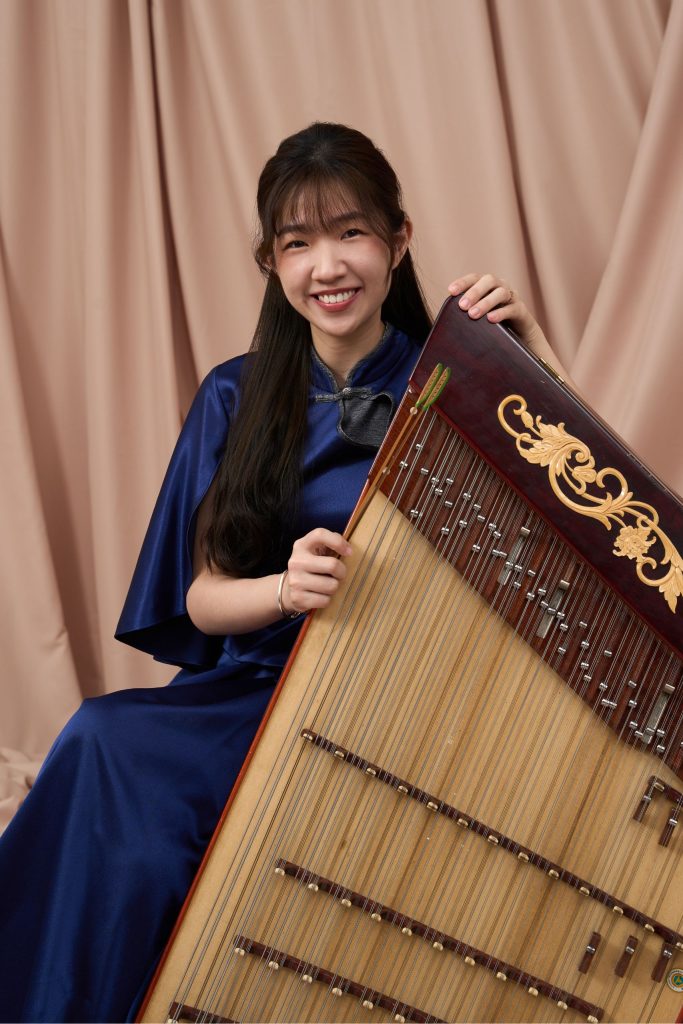Tan Jie Qing’s sensitivity and musical camaraderie as a yangqin musician has led to frequent collaborations with ensembles and orchestras in Singapore, as well as the opportunity to perform in hallowed concert halls in Beijing, Shanghai, and Taiwan, to name a few.
She became Ding Yi Music Company’s yangqin musician in 2019, drawn by how the progressive, award-winning ensemble honours tradition while embracing contemporary Chinese music in its repertoire. Tan is firmly aligned with Ding Yi’s aspirations to become a renowned Chinese chamber ensemble all over the world.
She is also the principal yangqin musician in the Singapore National Youth Chinese Orchestra, and has performed with the Singapore Chinese Orchestra, Asian Cultural Symphony Orchestra, Ensemble Æquilibrium, and the Nanyang Academy of Fine Arts Orchestra.
In 2021, Tan obtained her Bachelor of Music with First Class Honours at the Nanyang Academy of Fine Arts, where she majored in yangqin under the tutelage of Qu Jian Qing, principal yangqin musician in the Singapore Chinese Orchestra. She also studied under educator and prolific yangqin performer Ma Ying Jun of the Central Conservatory of Music in Beijing during her time as an exchange student.
Her slate of personal wins includes top honours in the yangqin solo open category of the National Arts Council’s National Arts Council Chinese Music Competition in 2018. She also participated in the Nanyang International Music Competition, placing third in the yangqin solo open category 2017 and the ensemble category in the NAC National Chinese Music Competition 2016.
As a soloist and chamber musician, she has premiered works from esteemed composers including Qi Haodi (China), Emily Koh (USA) and Joyce Koh (Singapore). Priding herself on her modern, versatile and creative approach, she says: “I would love to explore more chamber pieces and yangqin solo with chamber ensemble accompaniment and have more opportunities to shine as a yangqin soloist and chamber musician.
“My philosophy is that musicians need to explore more contemporary music, collaborate with living composers, and even explore multidisciplinary art forms and not just pure music,” she says.
